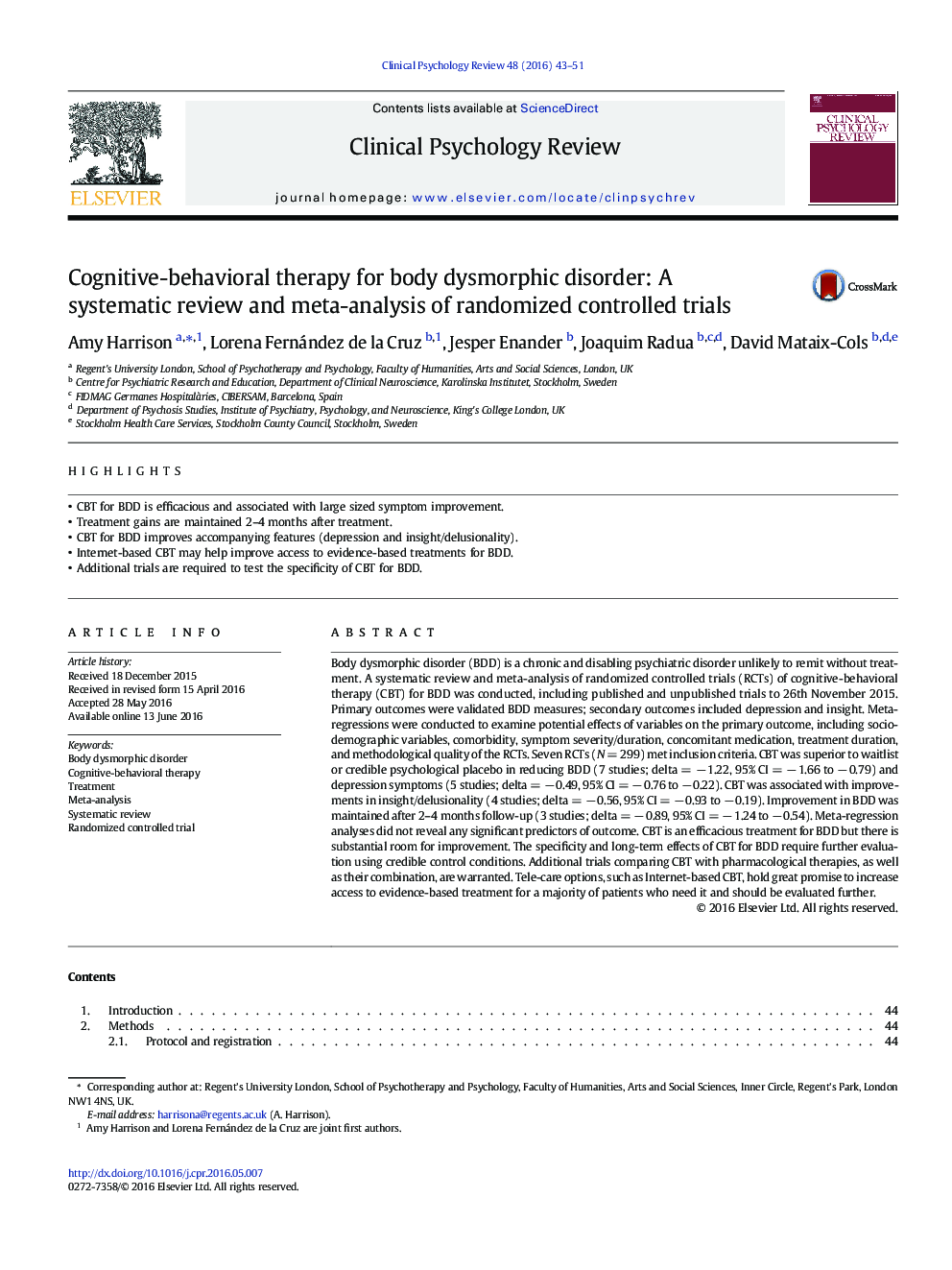| Article ID | Journal | Published Year | Pages | File Type |
|---|---|---|---|---|
| 7263757 | Clinical Psychology Review | 2016 | 9 Pages |
Abstract
Body dysmorphic disorder (BDD) is a chronic and disabling psychiatric disorder unlikely to remit without treatment. A systematic review and meta-analysis of randomized controlled trials (RCTs) of cognitive-behavioral therapy (CBT) for BDD was conducted, including published and unpublished trials to 26th November 2015. Primary outcomes were validated BDD measures; secondary outcomes included depression and insight. Meta-regressions were conducted to examine potential effects of variables on the primary outcome, including socio-demographic variables, comorbidity, symptom severity/duration, concomitant medication, treatment duration, and methodological quality of the RCTs. Seven RCTs (N = 299) met inclusion criteria. CBT was superior to waitlist or credible psychological placebo in reducing BDD (7 studies; delta = â 1.22, 95% CI = â 1.66 to â 0.79) and depression symptoms (5 studies; delta = â 0.49, 95% CI = â 0.76 to â 0.22). CBT was associated with improvements in insight/delusionality (4 studies; delta = â 0.56, 95% CI = â 0.93 to â 0.19). Improvement in BDD was maintained after 2-4 months follow-up (3 studies; delta = â 0.89, 95% CI = â 1.24 to â 0.54). Meta-regression analyses did not reveal any significant predictors of outcome. CBT is an efficacious treatment for BDD but there is substantial room for improvement. The specificity and long-term effects of CBT for BDD require further evaluation using credible control conditions. Additional trials comparing CBT with pharmacological therapies, as well as their combination, are warranted. Tele-care options, such as Internet-based CBT, hold great promise to increase access to evidence-based treatment for a majority of patients who need it and should be evaluated further.
Keywords
Related Topics
Health Sciences
Medicine and Dentistry
Psychiatry and Mental Health
Authors
Amy Harrison, Lorena Fernández de la Cruz, Jesper Enander, Joaquim Radua, David Mataix-Cols,
